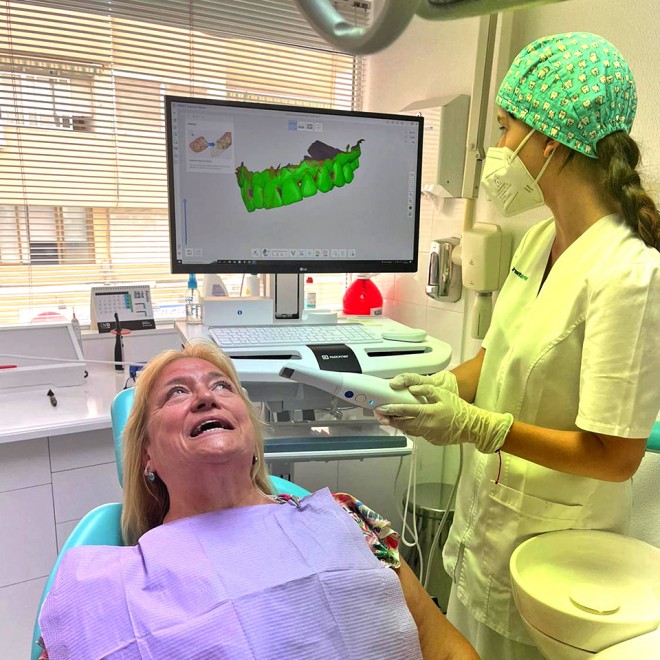Que es el escáner intraoral y para que se utiliza
El escáner “Medit i 700” incluye dos cámaras de alta velocidad, para escanear más rápidamente y más eficazmente que la media la cavidad oral. Registramos con esta herramienta cada una de las partes de la boca hasta conseguir una imagen en 3D. El proceso antiguo de toma de registro es ya cosa del pasado, nos olvidamos de tomar las impresiones de la boca del paciente mediante siliconas o alginatos con cubetas. El escáner intraoral se queda a años luz de esta técnica en confort y eficacia.
Como se utiliza el escaner intraoral?
Completado el escaneado, los datos son enviados al archivo digital del laboratorio de manera instantánea, ganamos en precisión eficacia y rapidez en la ejecución del tratamiento.




